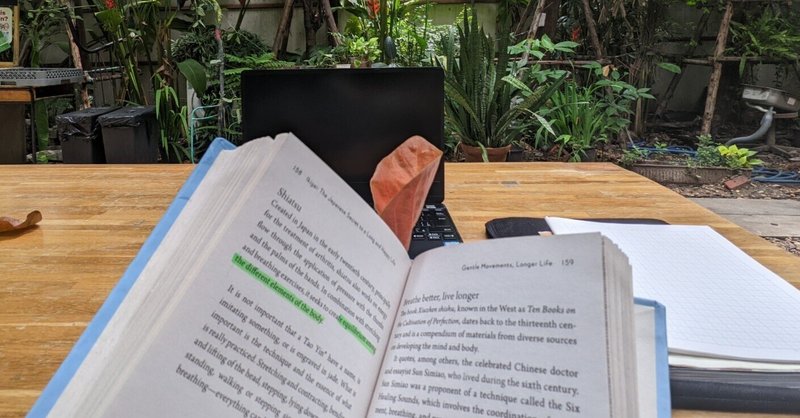
インドからベトナム、そしてタイへ「将来、何をしたら良いかわからない」と悩む人々へ【本:IKIGAI】
インドのデリーにある、本屋さんが立ち並ぶ Netaji Subhash Marg 通り。この通りにある、一軒の本屋さんで見つけた IKIGAI という本。この本は、スペイン人のFrancesc Miralles氏とHector Garcia氏が共著し、2016年春に出版された。

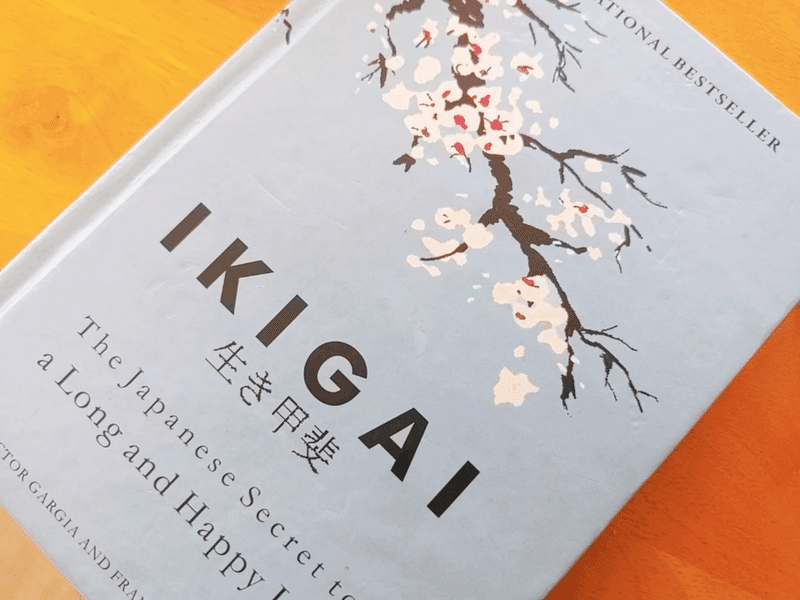
思えば、世界に溢れる様々な言葉の中には、その言葉を知る母語話者よりも、言葉の意味を見出して、世界に(再)発信されるものがある。生き甲斐もそのひとつなのかもしれない。私たちの生活に、「秘密」と言われるものはあるのだろうか。時に、他の、世界の誰かが与えて、言語化してくれた「意味」や「意義」を通して、改めて自分たちの生活を知ることになる。それ自体が、「生き甲斐」を与えてくれることもある。
インドでも、この本を読んだ方々は結構周りにいて、「あーこの本読んだよ。この本の中で、沖縄のある島が世界でも長寿の場所として語られているよね」とスラっといわれる。
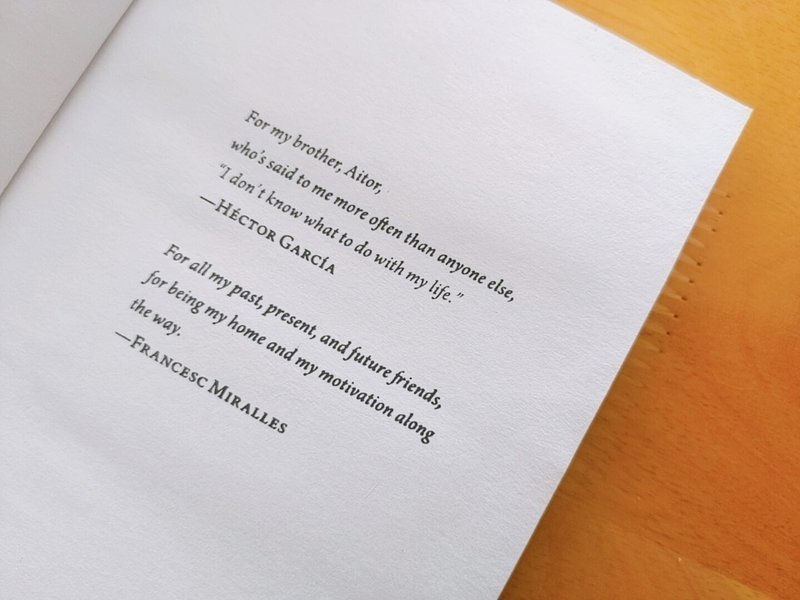
簡単にいうと、この本では、「あなたが好きなこと」「世界が必要としていること」「報酬を受けられること」「あなたが得意なこと」が重なり合った中心に「生き甲斐」があると説いている。
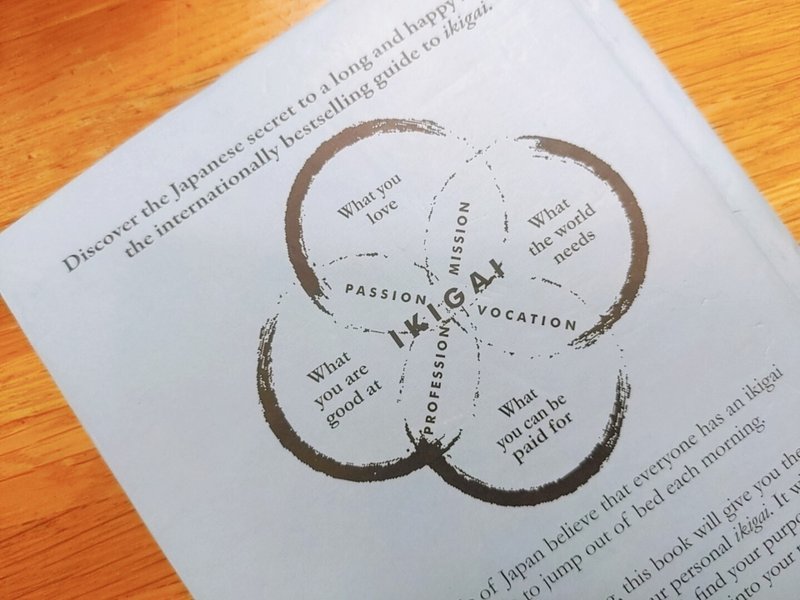
Willと Need と Can の組み合わせを思い出す。自分の意志と、できることと、必要とされることが重なりあった部分の仕事をすることで、個人の能力が最大限発揮できて、充実度も高まるという考え方だ。でも、この本は単純に仕事だけではなく、人生そのものの生き甲斐とは、を沖縄県の大宜味村にて人々にインタビューを繰り返し、探っていく。
そもそも、大宜味村が「長寿の里」だということ、この村が世界から注目されていたこと、私自身が全く知らなかった。
http://www.vill.ogimi.okinawa.jp/village_longevity/
インドで購入、読み始めて、ベトナムのカフェに連れていって、タイのバンコクまでのフライトが遅延したおかげでようやく読み終わり、今に至る。そして、この本は、タイのバンコクにあるホステルに捧げた。

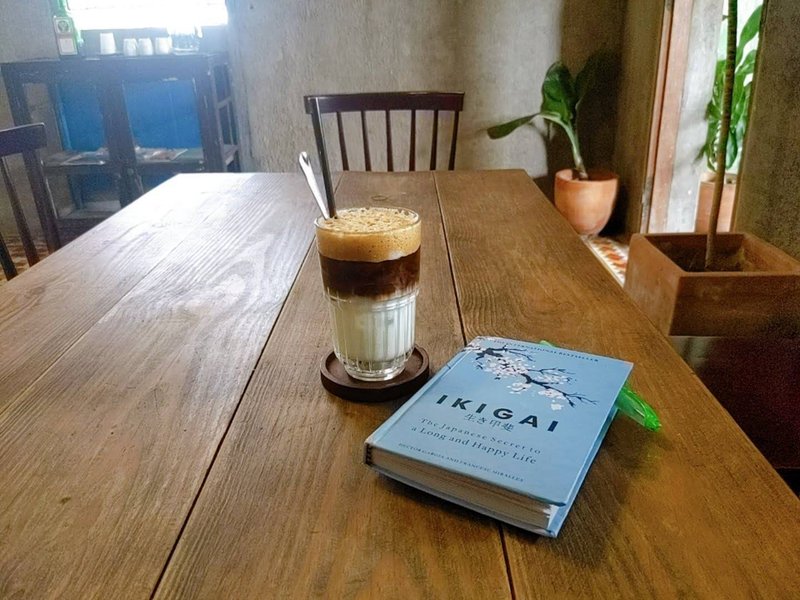
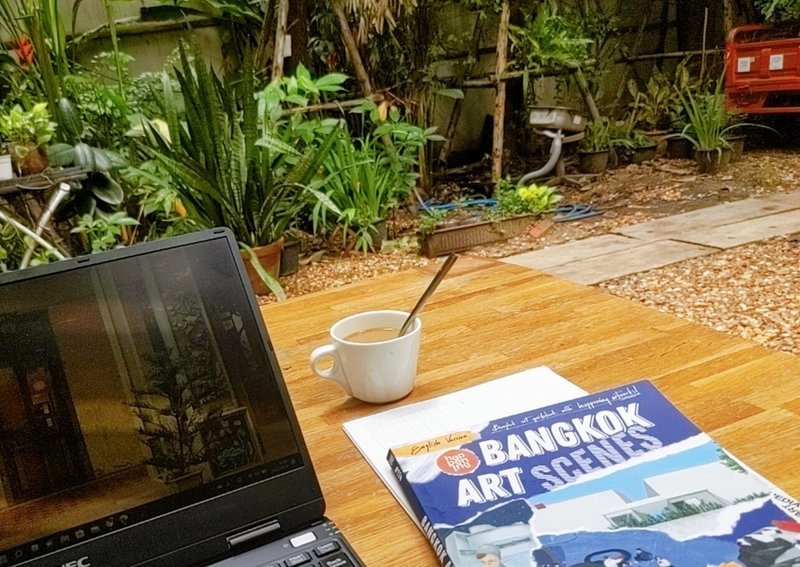
Those who study why the inhabitants of this island in the south of Japan live longer than people anywhere else in the world believe that one of the keys - in addition to a healthful diet, a simple life in the outdoors, green tea, and the subtropical climate (its average temrerature is like that of Hawaii) - is the ikigai that shapes their lives
This book is dedicated to bringing this philosophy to the West
Ogimi in Okinawa: One of the secrets to happiness of Ogimi's regidents is feeling like part of a community. Nurturing friendships, eating light, getting enough rest, and doing regular, moderate exercise are all part of the equation of good health. Keep celebrating birthdays and cherishing each new day is their ikigai.
Having a purpose in life is so important in Japanese culture that the idea of retirement simply doesn't exist there
The five blue zonses ここで、世界の長寿地域を紹介している
1.Okinawa, Japan
2.Sardinia, Italy
3.Loma Linda, California
4.The Nicoya Peninsula, Costa Rica
5.Ikaria, GreeceFor many, helping others might be an ikigai strong enough to keep them alive
Little things that add up to a long and happy life
Presented with new information, the brain creates new connections and is revitalized. This is why it is so important to expose yourself to change, even if stepping outside your comfort zone means feeling a bit of anxiety.
Dealing with new situations, learning something new every day, playing games, and interacting with other people seem to be essential antiaging strategies for the mind.
Be mindful about reducing stress
One way to reach a state of mindfulness is through meditation, which helps filter the information that reaches us from the outside world. It can also be achieved through breathing exercises, yoga, and body scans.
A lot of sitting will age you 座りすぎると老いる!笑
1.Walk to work, or just go on a walk for at least tewnty minutes each day
2.Use your feet instead of an elevator or escalator
3.Participate in social or leisure activities
4.Get the right amount of sleep
5.Play with children or pets, or join a sports team. This not only strengthens the body but also stimulates the mind and boosts self-esteem.
6.Be conscious of your daily routine in order to detect harmful habits and replace them with more postitive onesLogotherapy: It helps you find reasons to live
Something to live for
A study conducted by Franklin his Vienna clinic found that among both patients and personnel, around 80 percent believed that human beings needed a reason for living, and around 60 percent felt they had someone or somthing in their lives worth dying for.Fight for yourself
Existential frustration arises when our life is without purpose, or when that purpose is skewed. In Frankl's view, however, there is no need to see this frustration as an anomaly or a symptom of neurosis; instead, it can be a positive thing - a catalyst for change.
"He who has a why to live for can bear with almost any how."
We often try to fill the gap between what is expected of them and what they want for themselves with economic power or physical pleasure, or by numbing their senses. It can even lead to suicide.
Morita Therapy
In the West, we tend to believe that what we think influences how we feel, which in turn influences how we act. In contrast, Morita theraphy forcuses on teaching patients to accept their emotions without trying to control them, since their feelings will change as a result of their actions.
"We are what we repeatedly do. Excellence, then, is not an act but a habit."
The power of flow
We have to focus on increasing the time we spend on activities that bring us to this state of flow, rather than allowing ourselves to get caught up in activities that offer immediate pleasureThe Seven Conditions for Achieving Flow
According to researcher Owen Schaffer of DePaul University, the requirements for achieving flow are:
1. Knowing what to do
2. Knowing how to do it
3. Knowing how well you are doing
4. Knowing where to go (where navigation is involved)
5. Perceiving significant challenges
6. Perceiving significant skills
7. Being free from distractionsAdd a little something extra, somthing that takes you out of your comfort zone
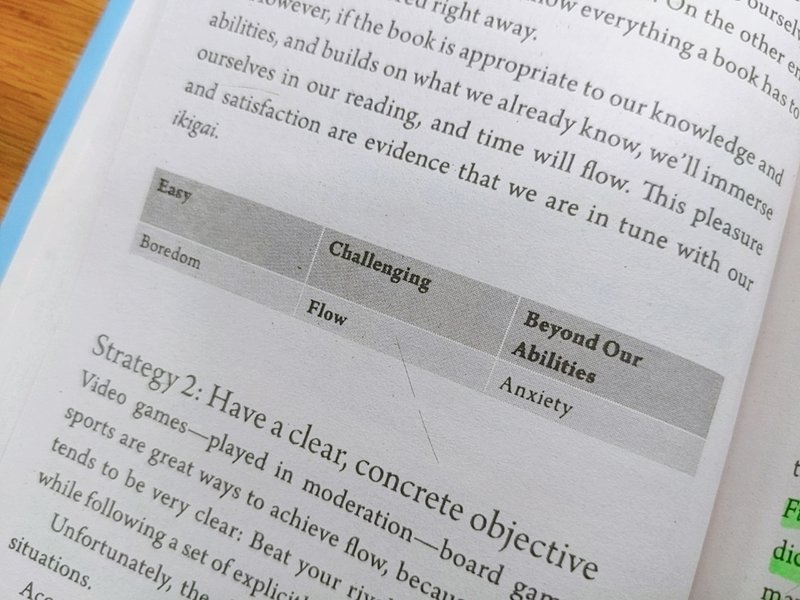
Whiplash: How to Survive Our Faster Future
"In an incresingly unpredictable world moving ever more quickly, a detailed map may lead you deep into the woods at an unnecessarily high cost. A good compass, thogh, will always take you where you need to go. It doesn't mean that you should start your journey without any idea where you're going. What it does mean is understanding that while the path to your goal may not be straight, you'll finish faster and more efficiently that you would have if you had trudged along a preplanned route."
"A happy man is too satisfied with the present to dwell on the future."
Train your mind to return to the present when you find yourself getting distracted. Practice mindfulness or another form of meditation, go for a walk or a swim - whatever will help you get centered again
The people of Japan have a unique talent for creating new technologies while preserving artisanal traditions and techniques.
Steve Jobs was also captivated by the simplicity and quality of Japanese porcelain in Kyoto. Ever since his first trip to Japan, Jobs was facsinated and inspired by the country's artisans, engineers (especially at Sony), philosophy (especially Zen), and cuisine (especially sushi)
Sophisticated simplicity
The novelist Haruki Murakami: He sees only a close circle of friends, and appears in public in Japan only once every few years. Artists know how important it is to protect their space, control their environment, and be free of distractions if they want to flow with their ikigai
The main religions in Japan - Confucianism, Buddhism, and Shintoism - are all ones in which the ristuals are more important than absolute rules. Rituals give us clear rules and objectives, which help us enter a state of flow.
The happiest people are not the ones who achieve the most. They are the ones who spend more time than others in a state of flow.
”Eat and sleep, and you’ll live a long time. You have to learn to relax.”
Never stop learning
"You may grow old and trembling in your anatomies, you may lie awake at night listening to the disorder of your veins, you may miss your only love, you many see the world about you devastated by evil lunatics, or know your honour trampled in the sewers of baser minds. There is only one thing for it then - to learn. Learn why the world wags and what wags it. That is the only thing which the mind can never exhaust, never alienate, never be tortured by, never fear or distrust, and never dream of regretting."
You stay in your time. You don't go backward. I think if you relate to the time you're in, you keep your eyes and ears open, read the paper, see what's going on, stay curious about everything, you will automatically be in your time.
"Food won't help you live longer"
"The secret is smiling and having a good time."
Ryukyu Shinto combines elements of Chinese Taoism, Confucianism, Buddhism, and Shintoism with shamanistic and animistic elements
According to this ancient faith, the world is populated by an infinite number of spirits divided into several types: spirits of the home, of the forest, of the trees, and of the mountains
In Okinawa's religious practive, women are considered spiritually superior to men, whereas the opposite is true of traditional Shintoism in the rest of Japan.
"To live a long time you eed to do three things: exercise to stay healthy, eat well, and spend time with people."
"My secret to a long life is always saying to myself 'Slow down,' and ''Relax. You live much longer if you're not in a hurry."
They celebrate all the time, even little things. Music, song, and dance are essential parts of daily life.
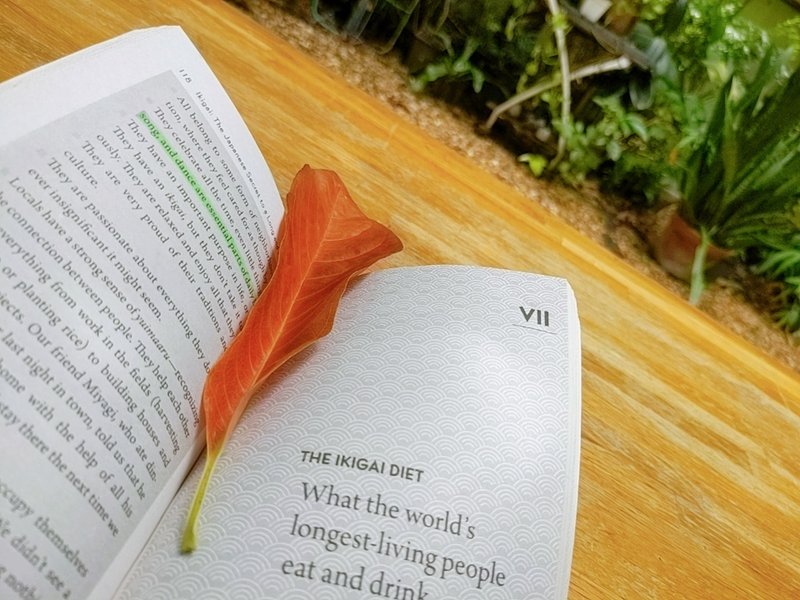
Experts point out that, for one thing, Okinawa is the only province in Japan without trains. Its residents have to walk or cycle when not driving.
15 natural antioxidants found in the Okinawan diet
Tofu, Miso, Tuna, Carrots, Goya (mitter melon), Kombu (sea kelp), Cabbege, Nori (seaweed), Onion, Soy sprouts, hechima (cucumber-like gourd), Soybeans (boiled or raw), Sweet potato, Peppers, Sanpin-cha (jasmine tea)The people who live longest are not the ones who do the most exercise but rather the ones who move the most (you don't need to go to the gym for an hour every day or run marathon)
Ogimi's residents walk a lot, do karaoke with their neibhbors, get up early in the morning, and, as soon as they've had breakfast - or even before - head outside to weed their gardens
Yoga - originally from India, though very popular in Japan - and China's qigong and tai chi, among other disciplines, seek to create harmony between a person's body and mind so they can face the world with strength, joy, and serenity.
One thing that everyone with a clearly defined ikigai has in common is that they pursue their passion no matter what. But resilience isn't just the ability to persevere. As we'll see in this chapter, it is also an outlook we can cultivate to stay focused on the important things in life rather than what is most urgent, and to keep ourselves from being carried away by negative emotions.
Resilient people know how to stay focused on their objective, on what matters, without giving it to discouragement. Their flexibility is the source of their strength: They know how to adapt to change and to reversals of fortune. They concentrate on the things they can control and don't worry about those they can't.
We should have a clear sense of what we can change and what we can't, which in turn will allow us to resist giving in to negative emotions.
"It's not what happens to you, but how you react that matters."
In Zen Buddhism, meditation is a way to become aware of our desires and emotions and thereby free ourselves from them. It is not simply a question of keeping the mind free of thoughts but instead involves observing our thoughts and emotions as they appear, without getting carried away by them. In this way, we train our minds not to get swept up in anger, jealousy, or resentment.
Impermanence of things
The temporary, ephemeral, and impermanent nature of the world is central to every Buddhist discipline. Keepin this always in mind helps us avoid excessive pain in times of loss.Wabi-sabi
Wabi-sabi is a Japanese concept that shows us the beauty of the fleeting, changeable, and imperfect nature of the world around us. Instead of searching for beauty in perfection, we should look for it in things that are flawed, incomplete. This is why the Japanese place such value on an irregular or cracked teacup. Only things that are imperfect, incomplete, and ephemeral can truly be beautiful, because only those things resemble the natural world.Japanese architecture, on the other hand, doesn't try to be imposing or perfect, because it is built in the spirit of wabi-sabi.
Beyond resilience: Antifragility
As Nassim Nicohlas Taleb explains in Antifragile: Things that gain from disorder, we use the word fragile to describe people, things, and organizations that are weakened when harmed, and the words robust and resilient for things that are able to withstand harm without weaening, but we dont' have a word for things that get stronger when harmed (up to a point)How can we be more antifragile?
Instead of having a single salary, try to find a way to make money from your hobbies, at other jobs, or by starting your own business.
Bet conservatively in certain areas and take many small risks in others
Get rid of the things that make you fragile (Gradually pay off all debt, avoid spending time with toxic people, avoid spending time doing things we don't enjoy, simply because we feel obligated to do them, spend no more than twenty minutes on Facebook per day)
Life is pure imperfection, as the philosophy of wabi-sabi teaches us, and the passage of time shows us that everthing is fleeting, but if you have a clear sense of your ikigai, each moment will hold so many possibilitis that it will seem almost like an eternity.
"Happiness is always determined by your heart"
"Keep going; don't change your path."
Modern life estranges us more and more from our true nature, making it very easy for us to lead lives lacking in meaning. Powerful forces and incentives (money, power, attention, success) distract us on a daily basis; don't let them take over your life. Our intuition and curiosity are very powerful internal compasses to help us connect with our ikigai. Follow those things you enjoy, and get away from or change those you dislike. Be led by your curiosity, annd keep busy by doing things that fill you with meaning and happiness. It doesn't need to be a big thing: we might find meaning in being good parents or in helping our neighbors.
Life is not a problem to be solved. Just remember to have somthing that keeps you busy doing what you love while being surrounded by the people who love you.
Stay active; don't retire
Take it slow
Don't fill your stomach
Surround yourself with good friends
Get in shape for your next birthday
Smile
Reconnect with nature
Give thanks
Live in the moment: Make the most of it. Make it worth remembering.
Follow your ikigai
Strictly speaking, Shinto means "the way of the kami." In Japanese, kami refers to spirits or phenomena that coexist with us in nature.
Suggestions for further reading:
Breznitz, Shlomo, and Collins Hemingway. Maximum Brain-power: Challenging the Brain for Health and Wisdom. Ballantine Books, 2012.
Buettner, Dan. The Blue Zones: Lessons for Living Longer from the People Who've Lived the Longest.
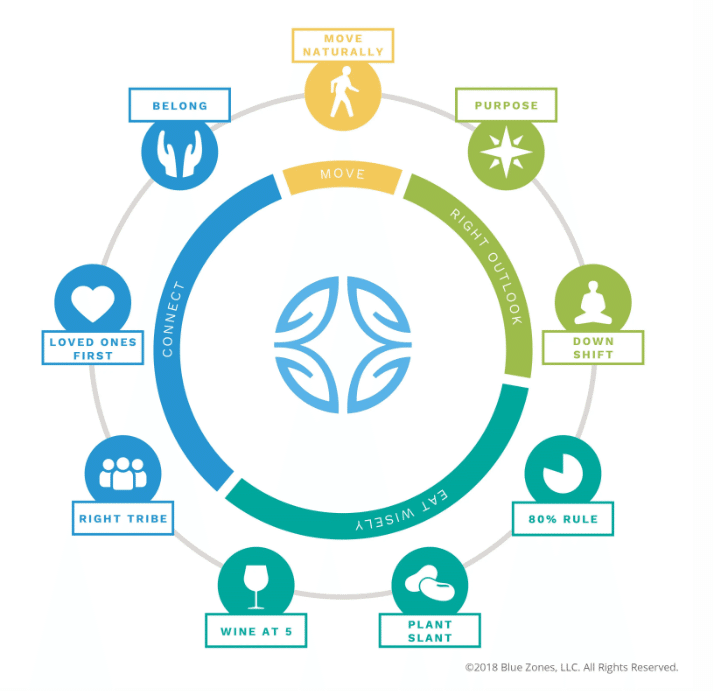
創造の場所であるカフェ代のサポートを頂けると嬉しいです! 旅先で出会った料理、カフェ、空間、建築、熱帯植物を紹介していきます。 感性=知識×経験 மிக்க நன்றி
